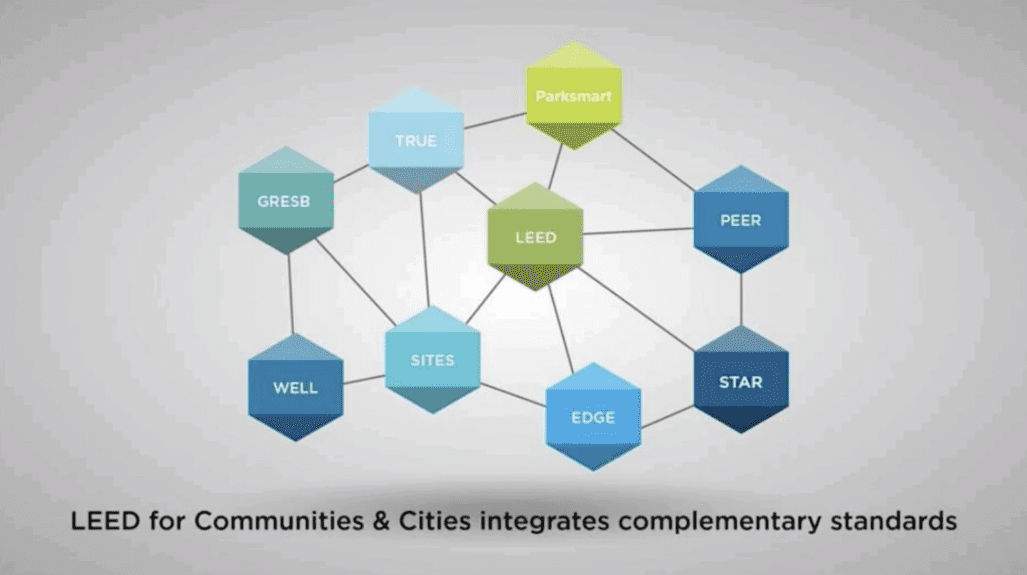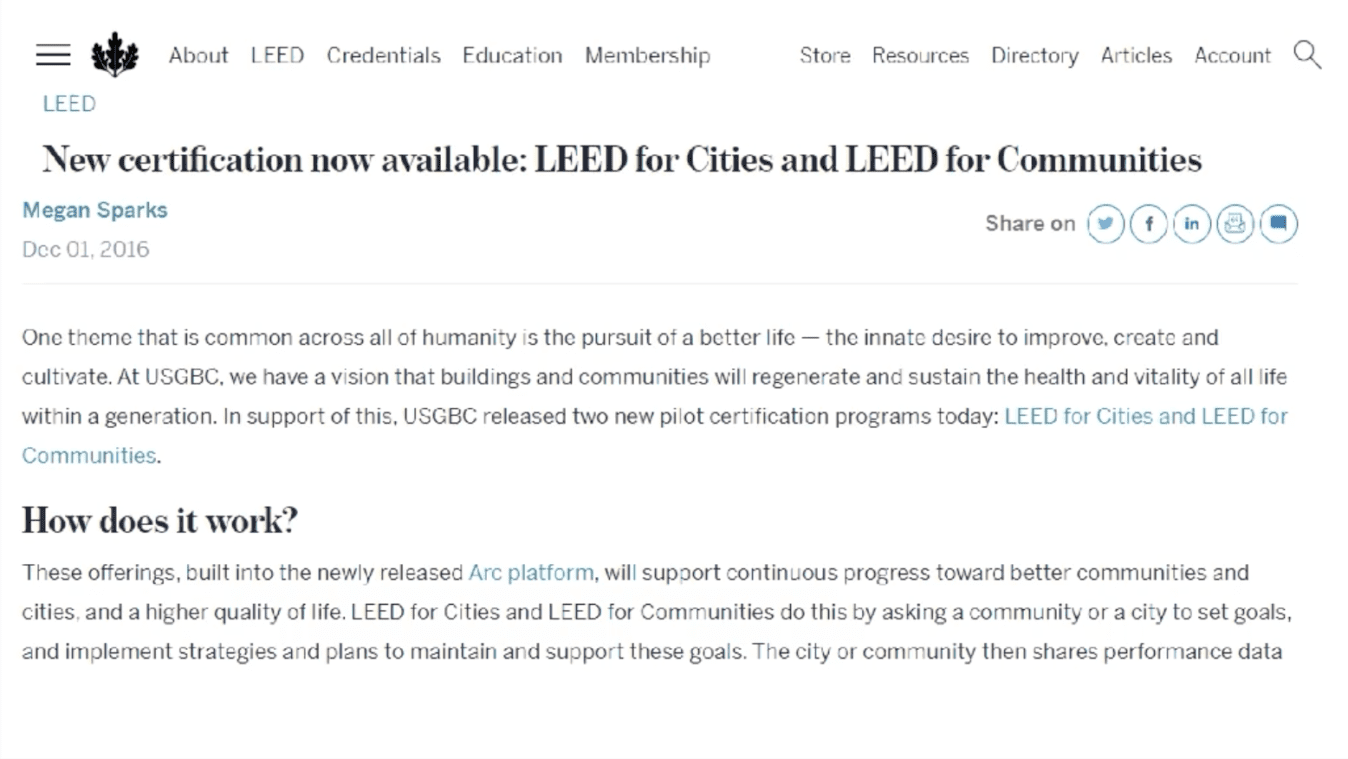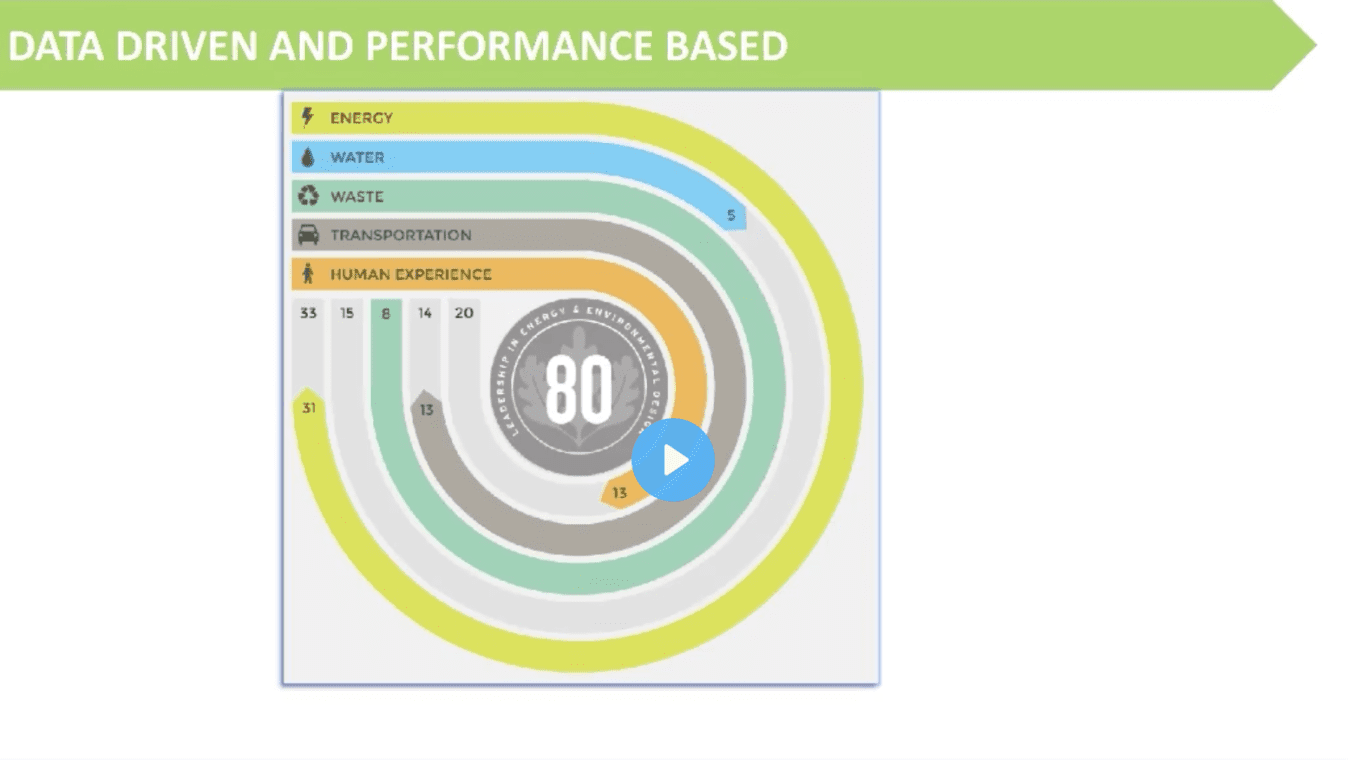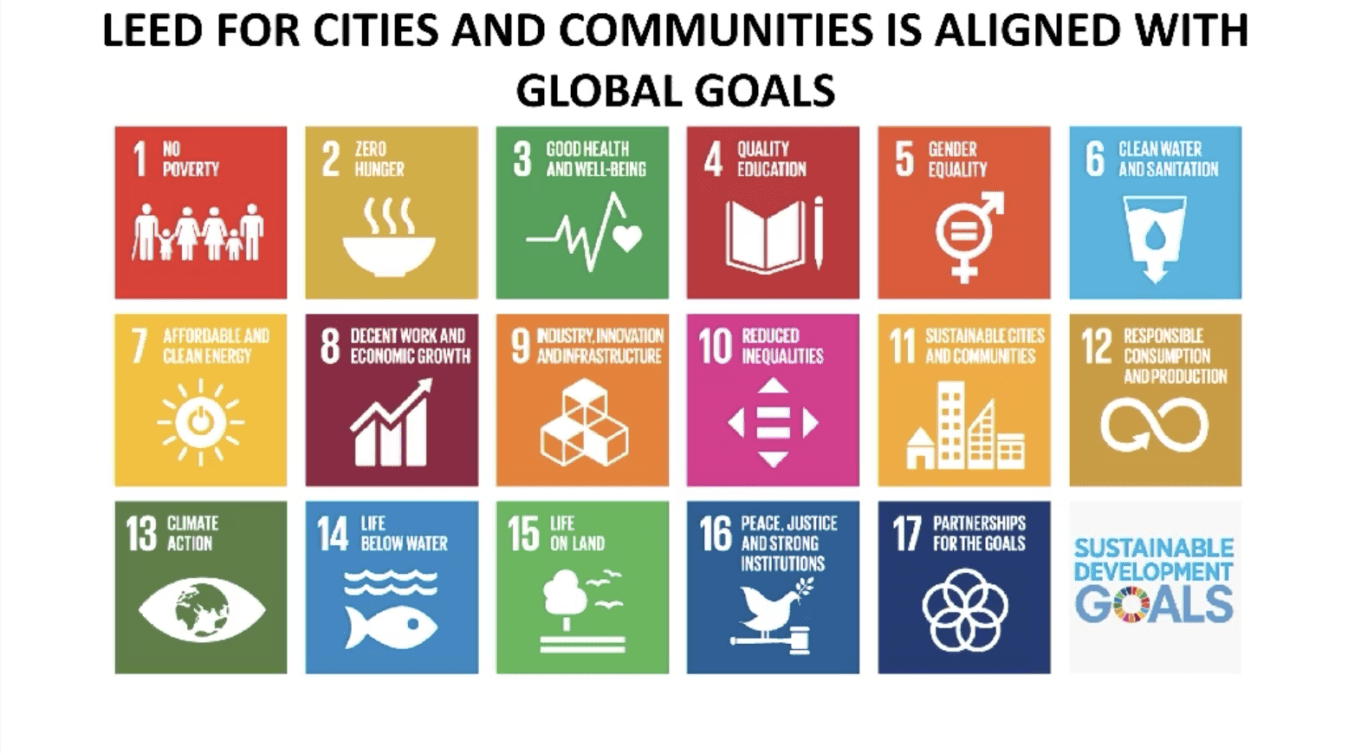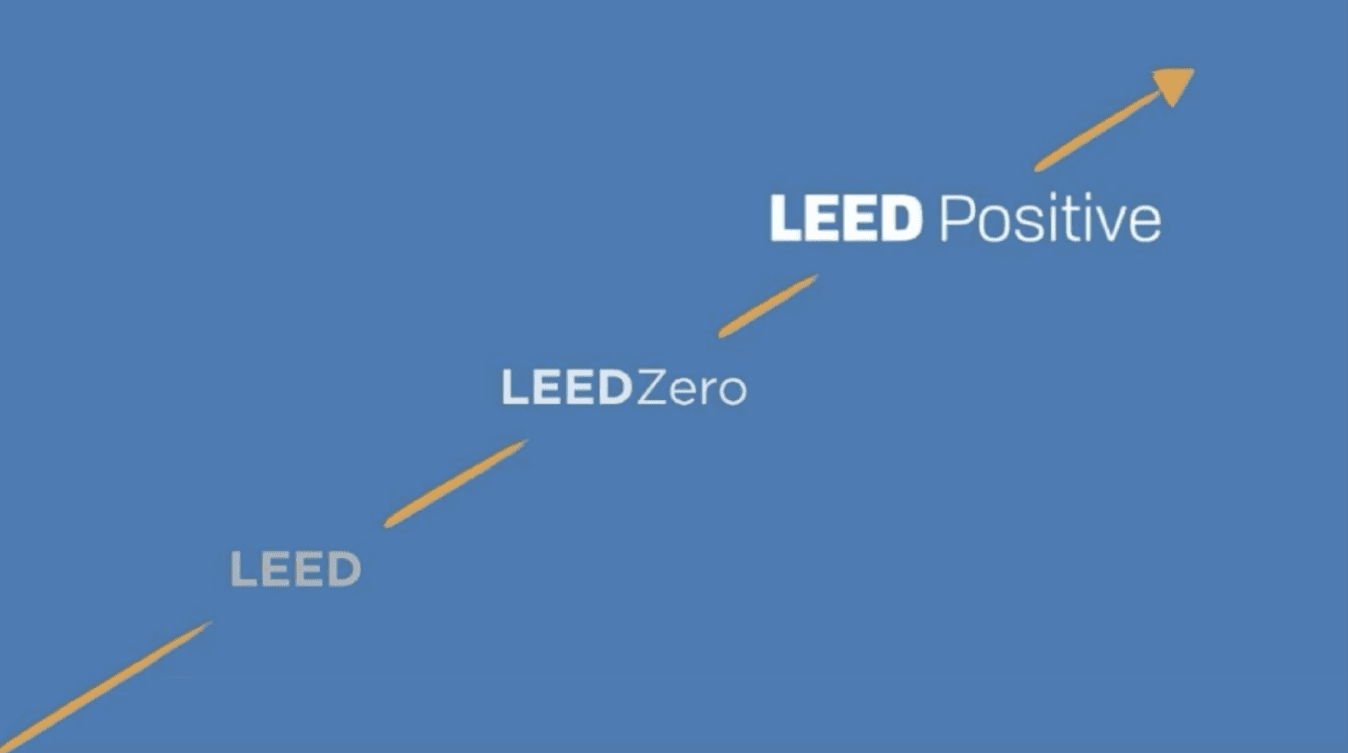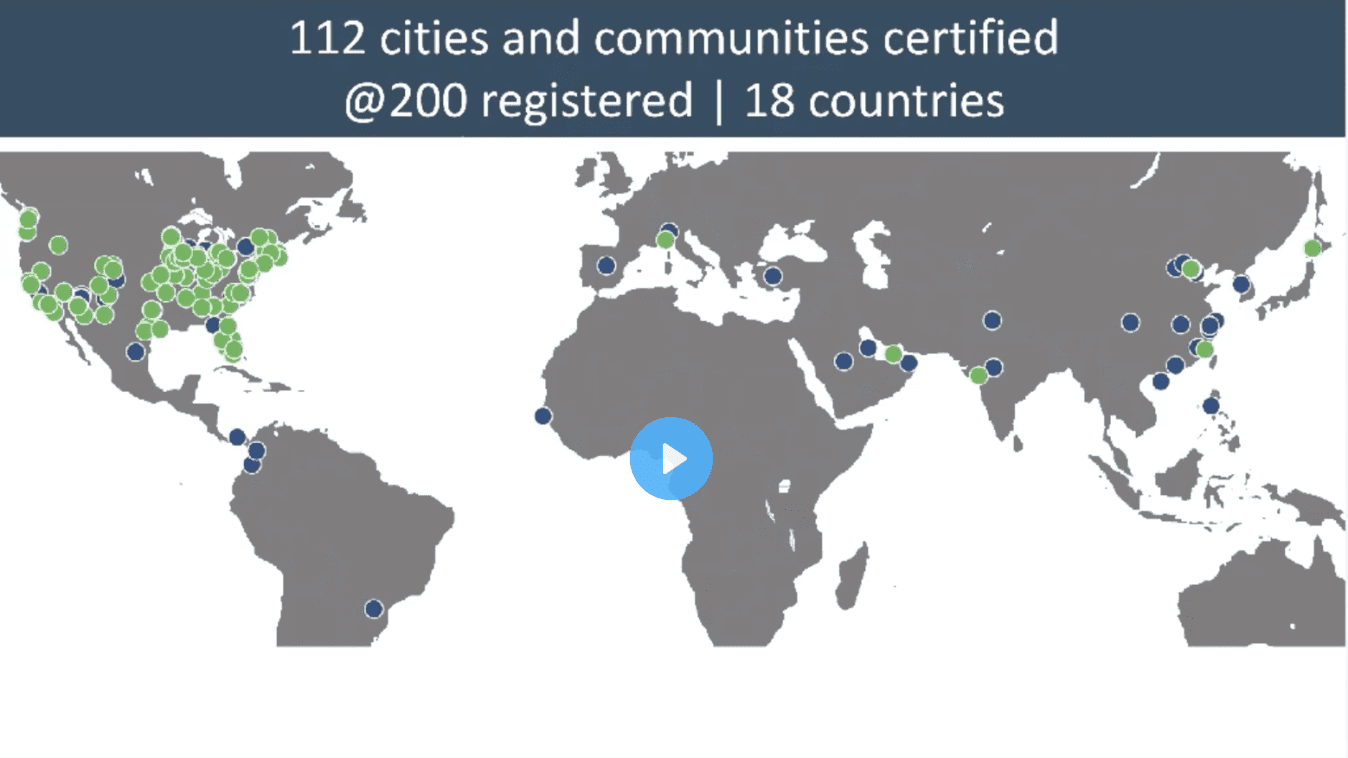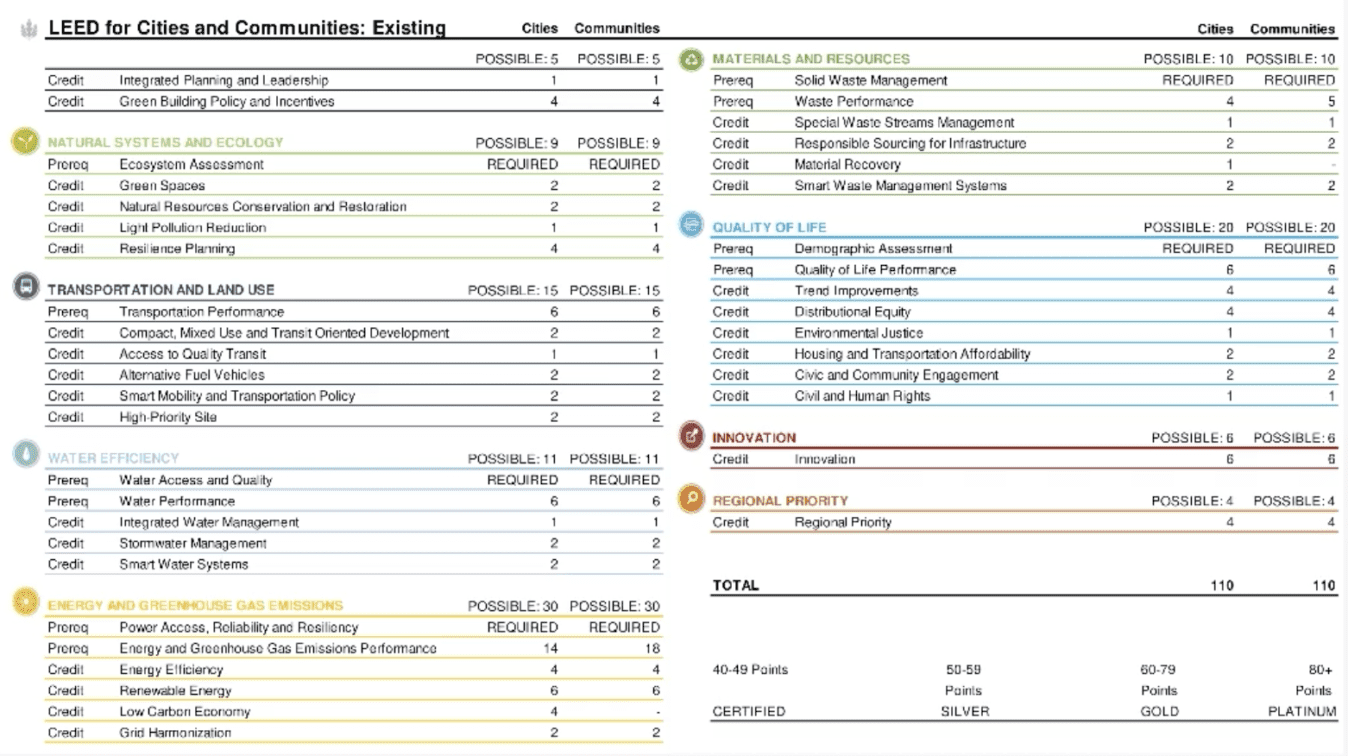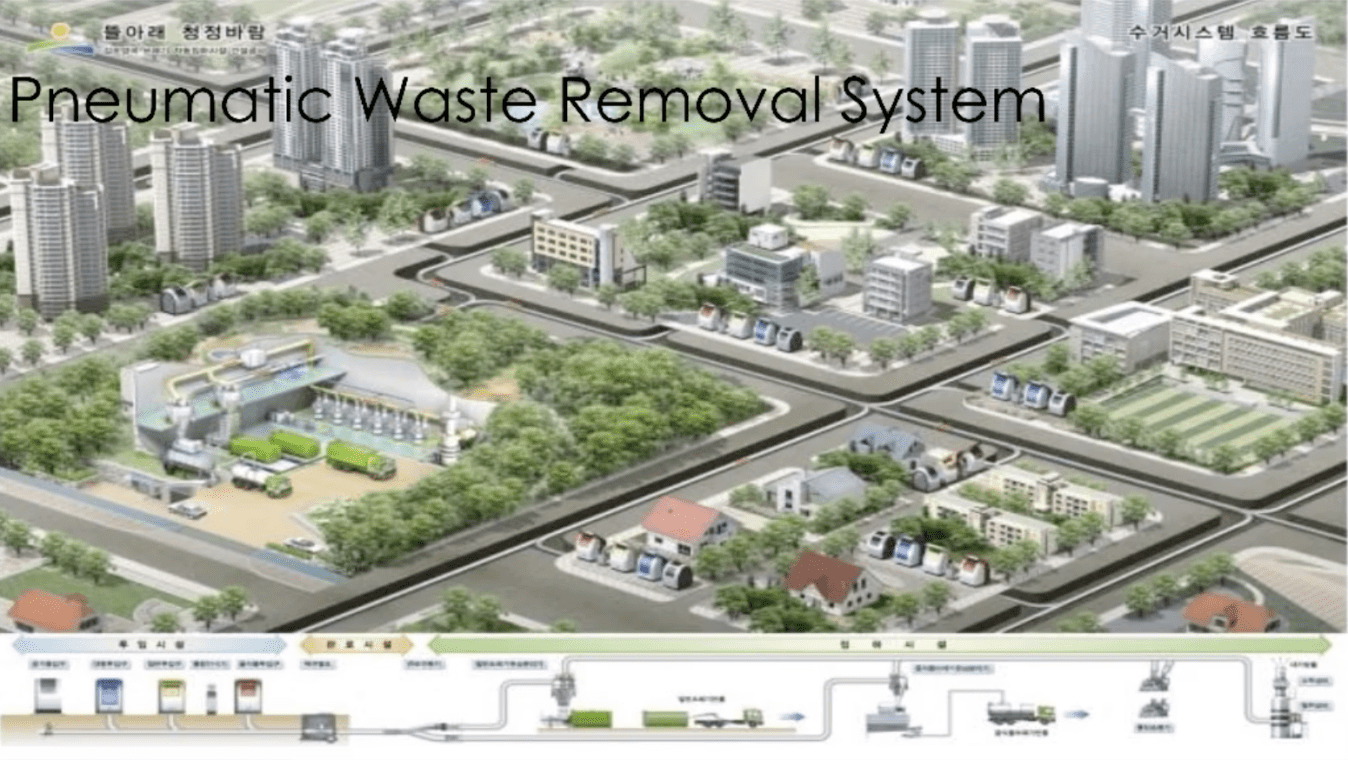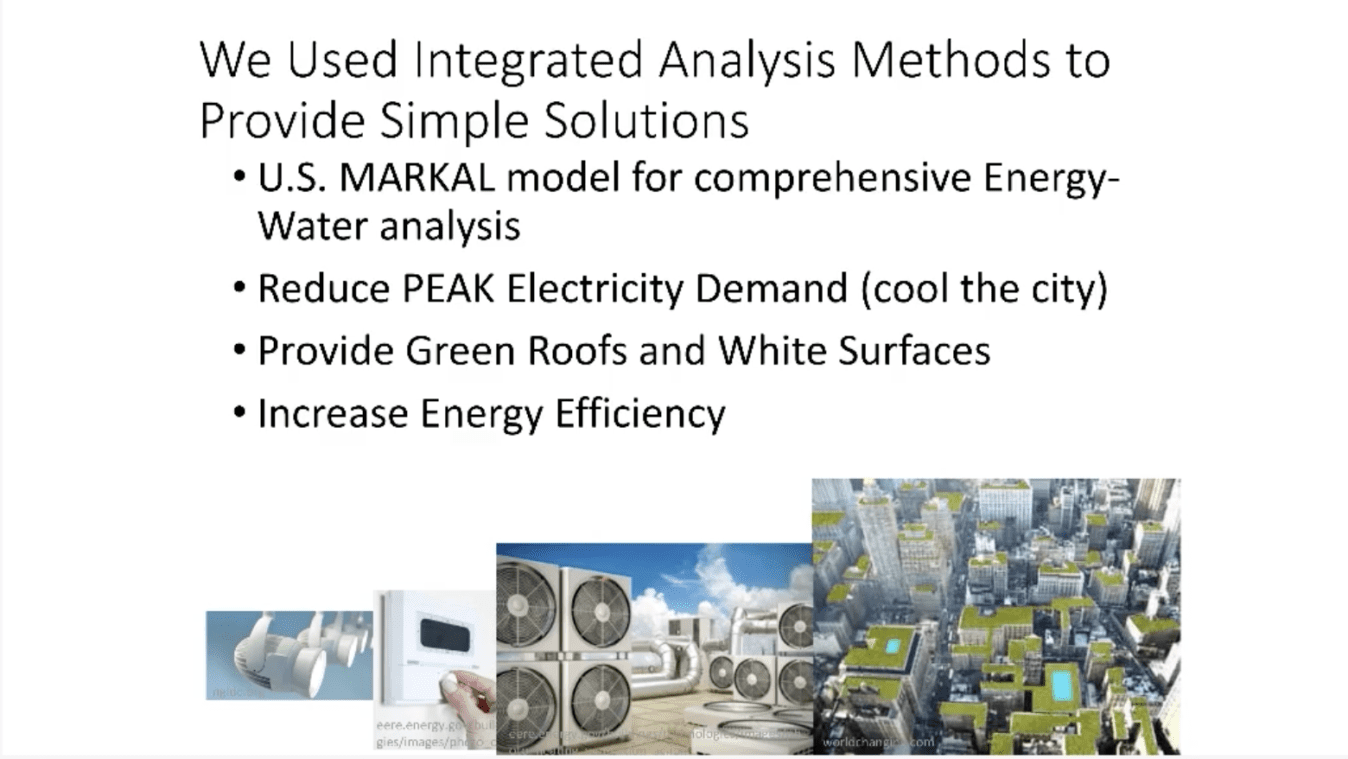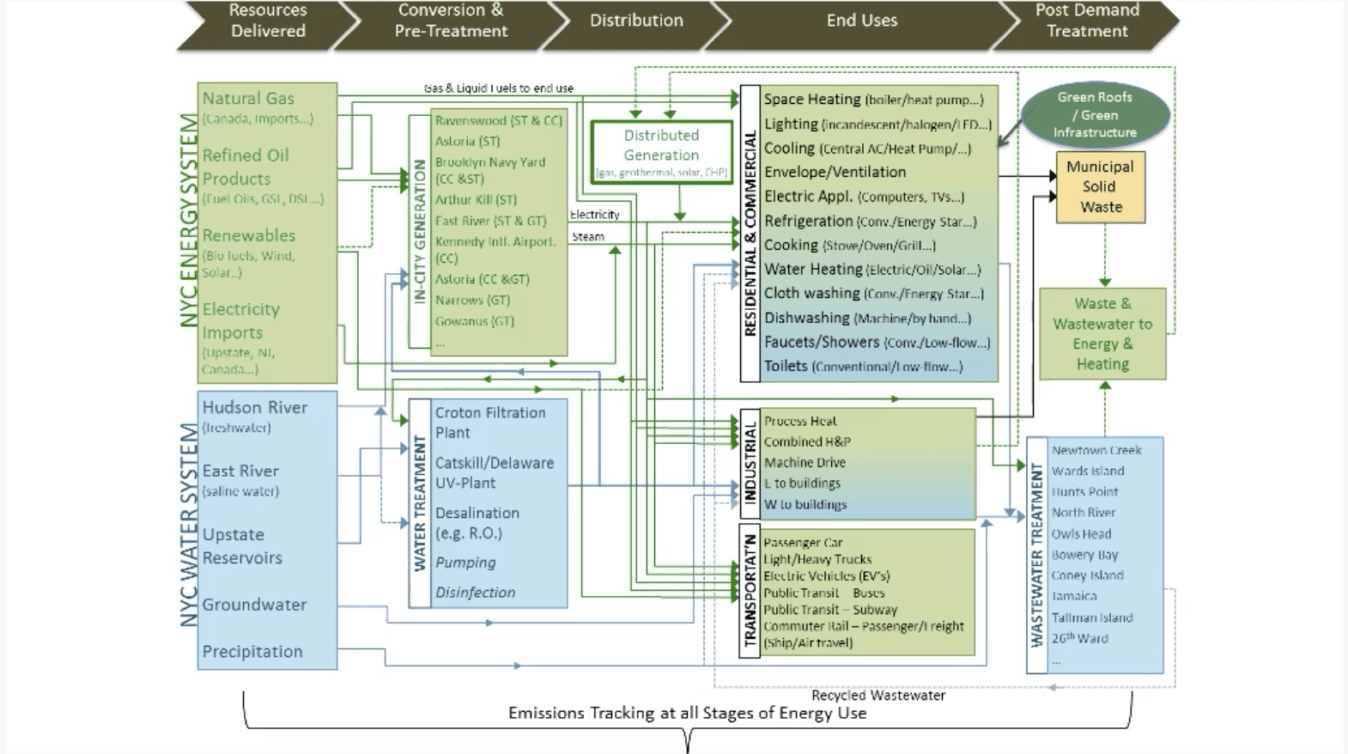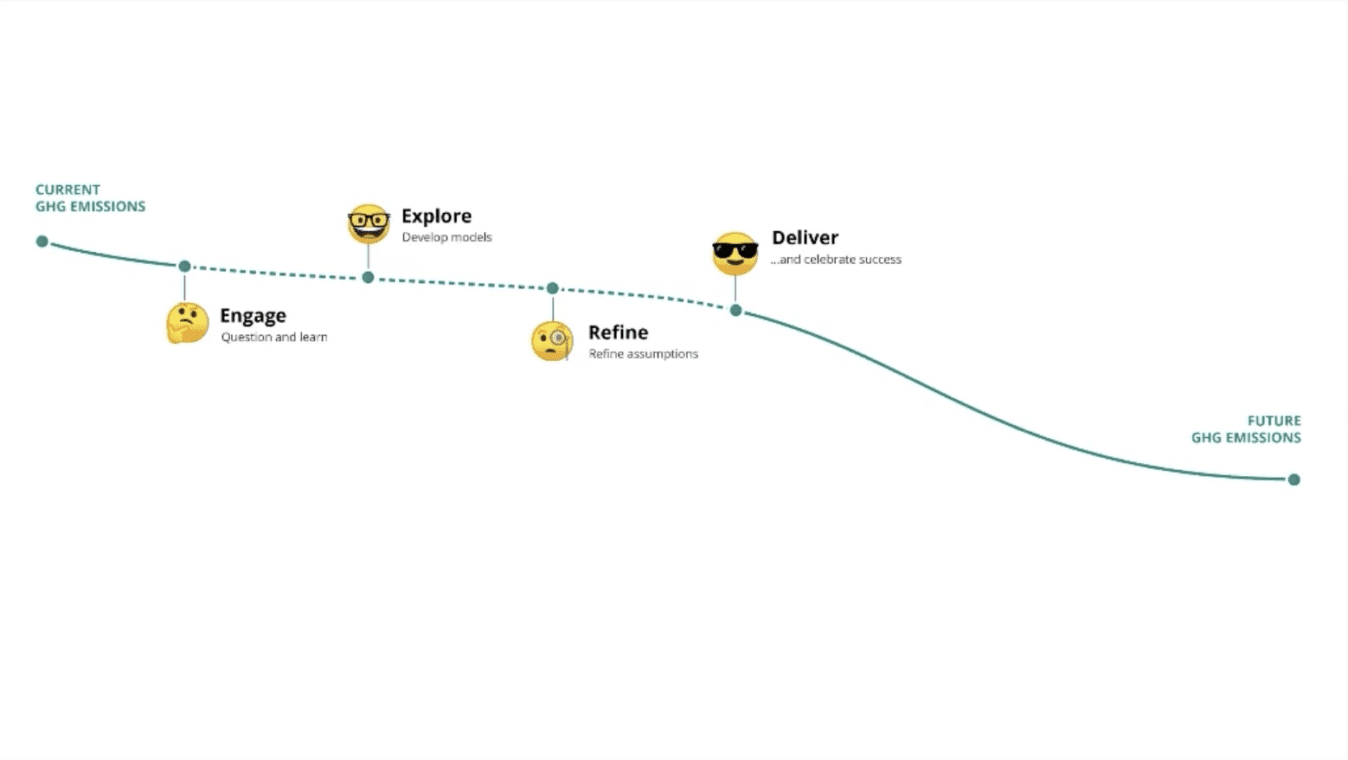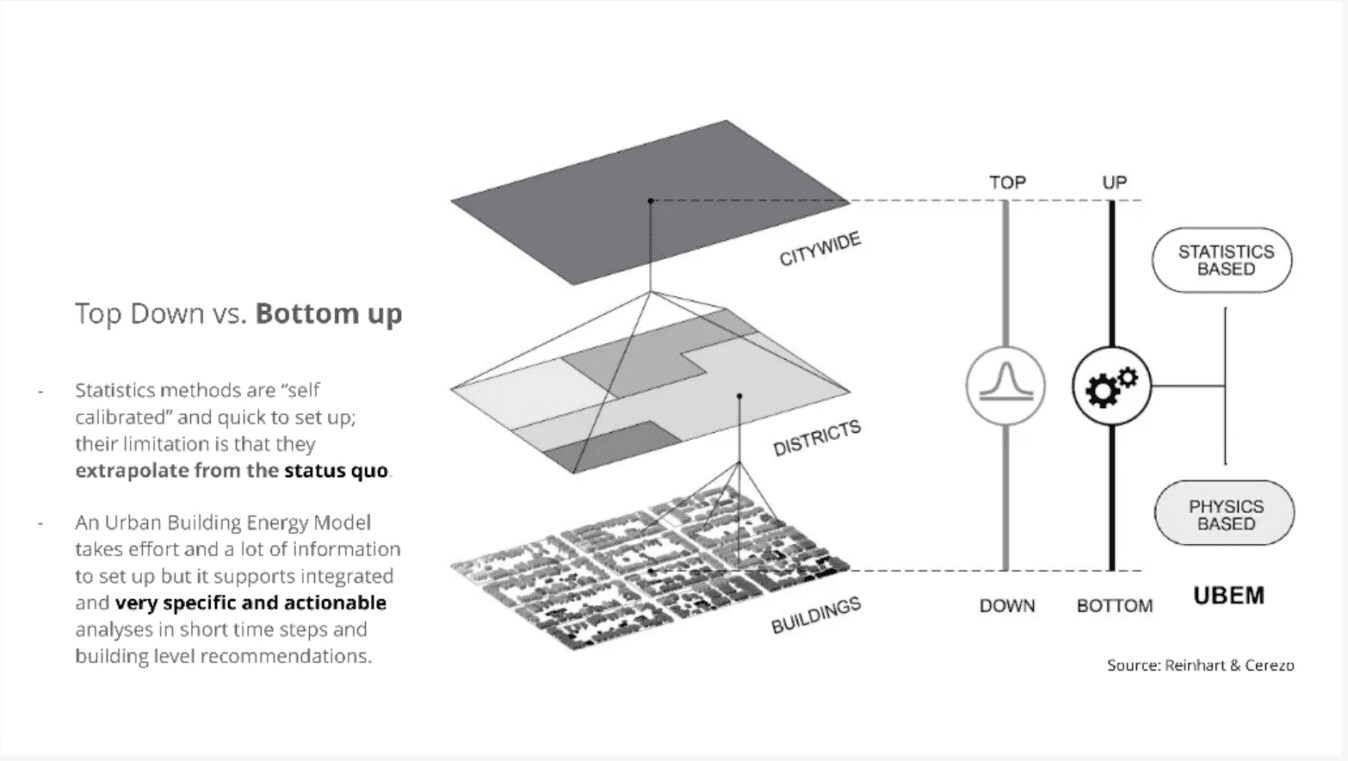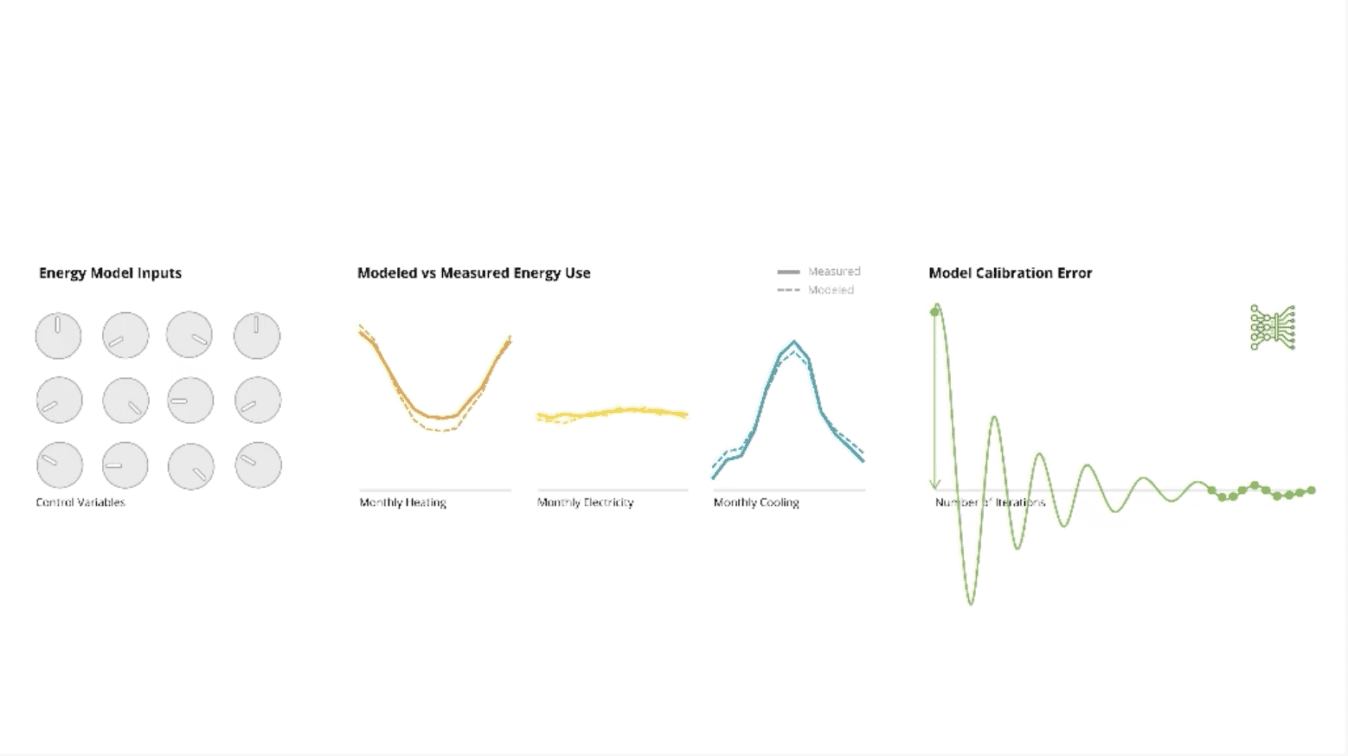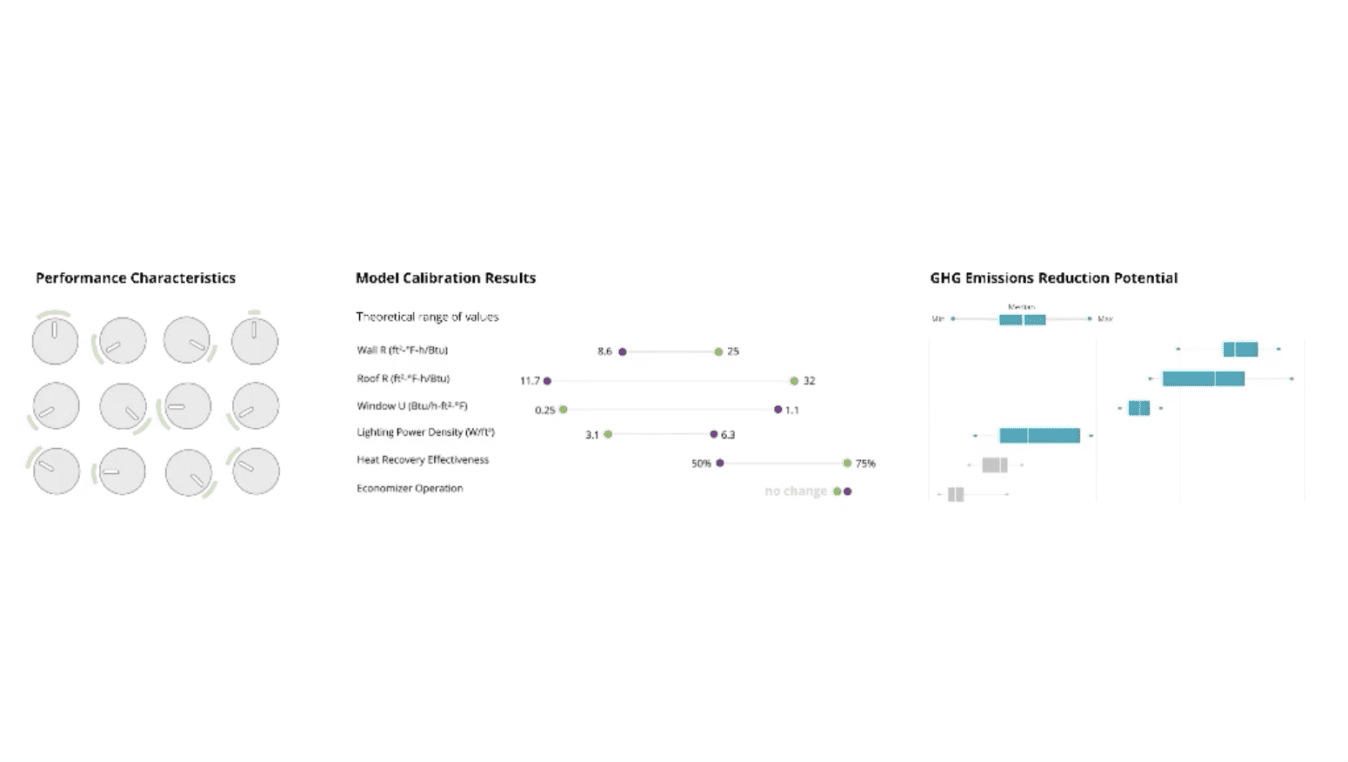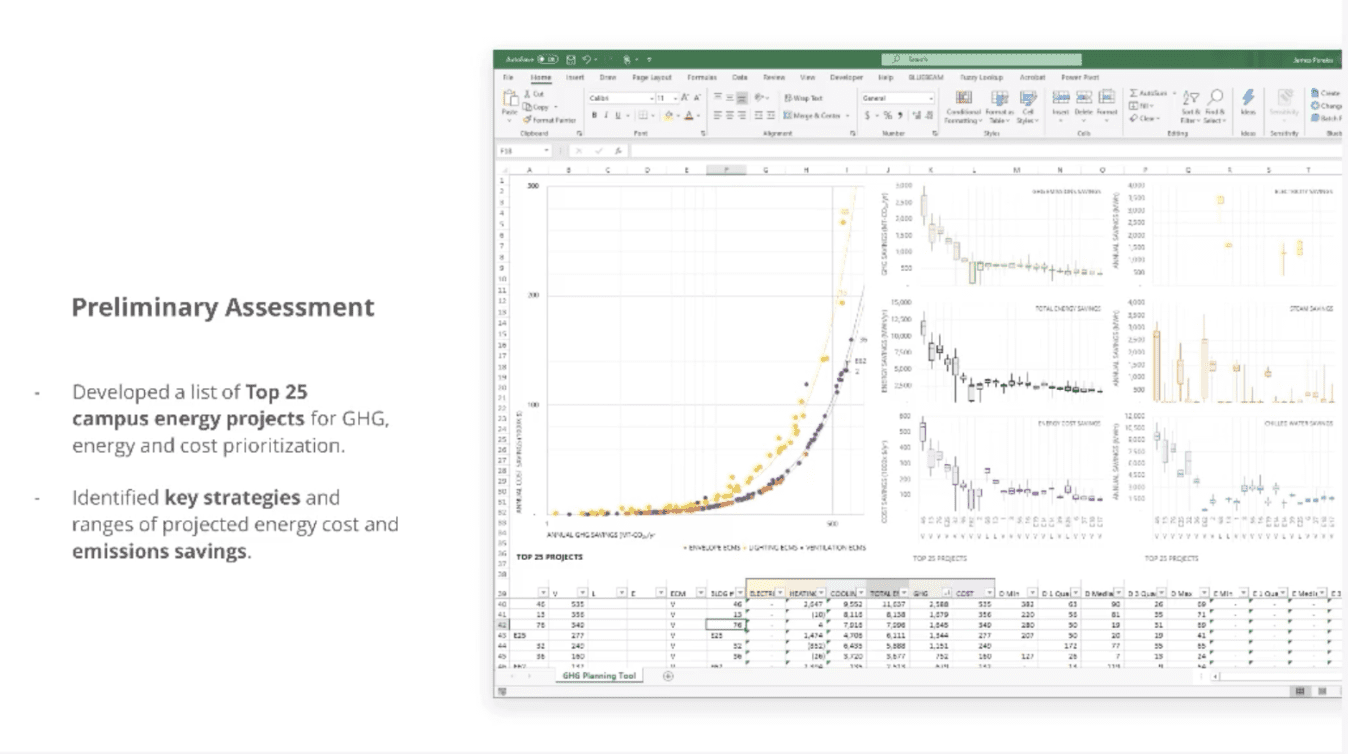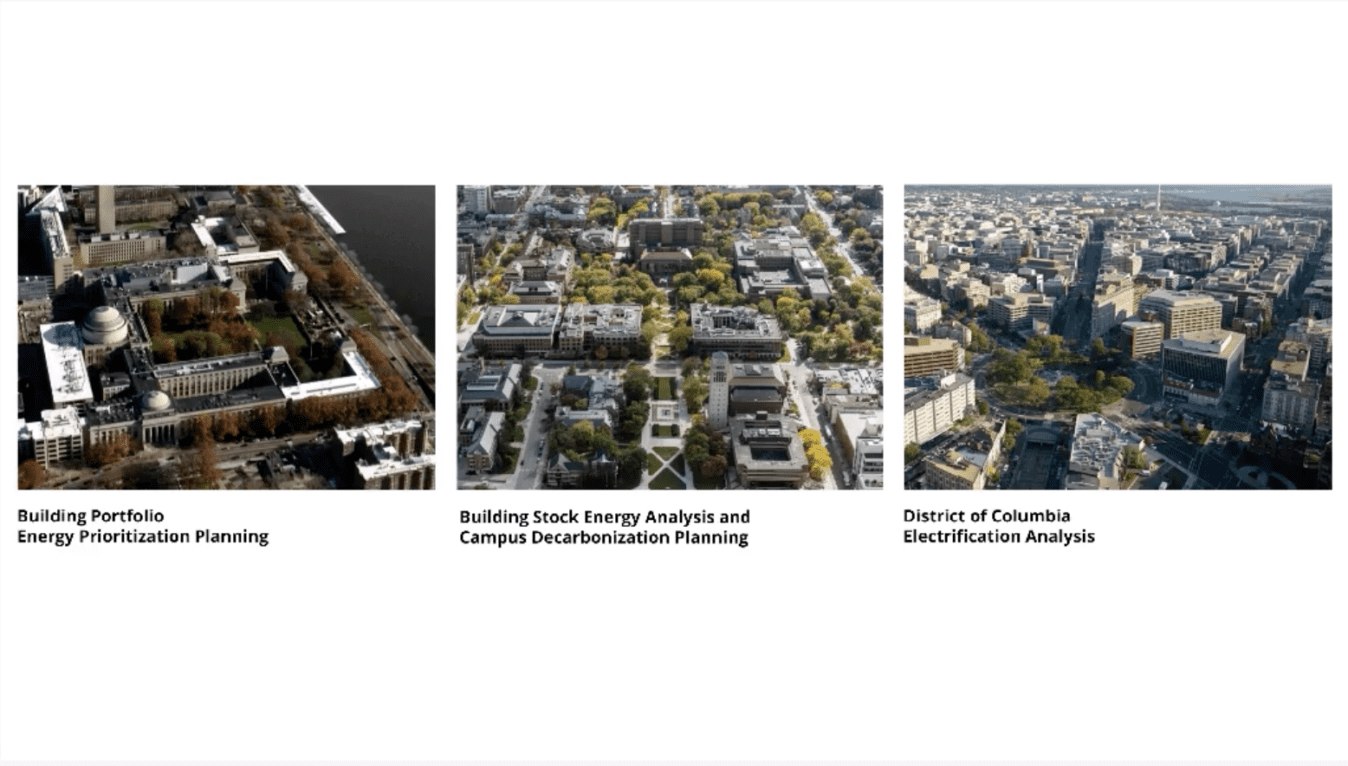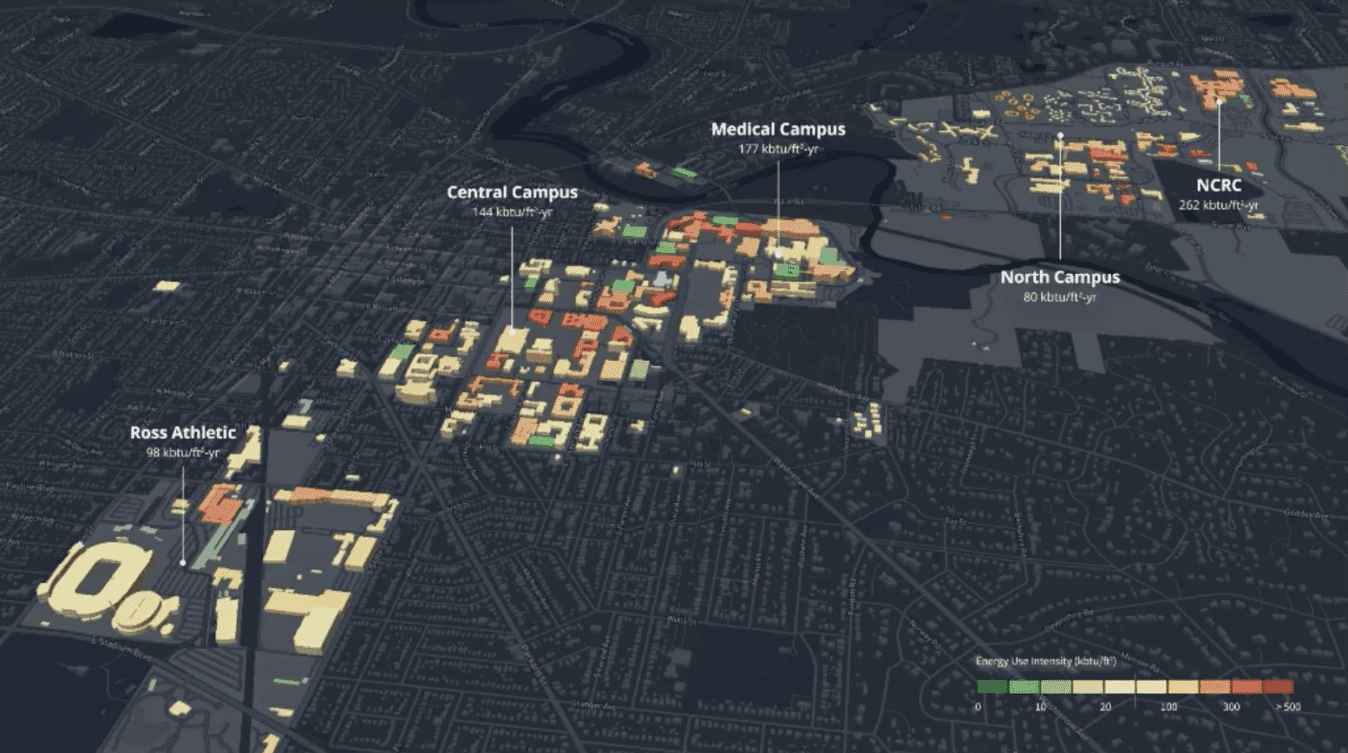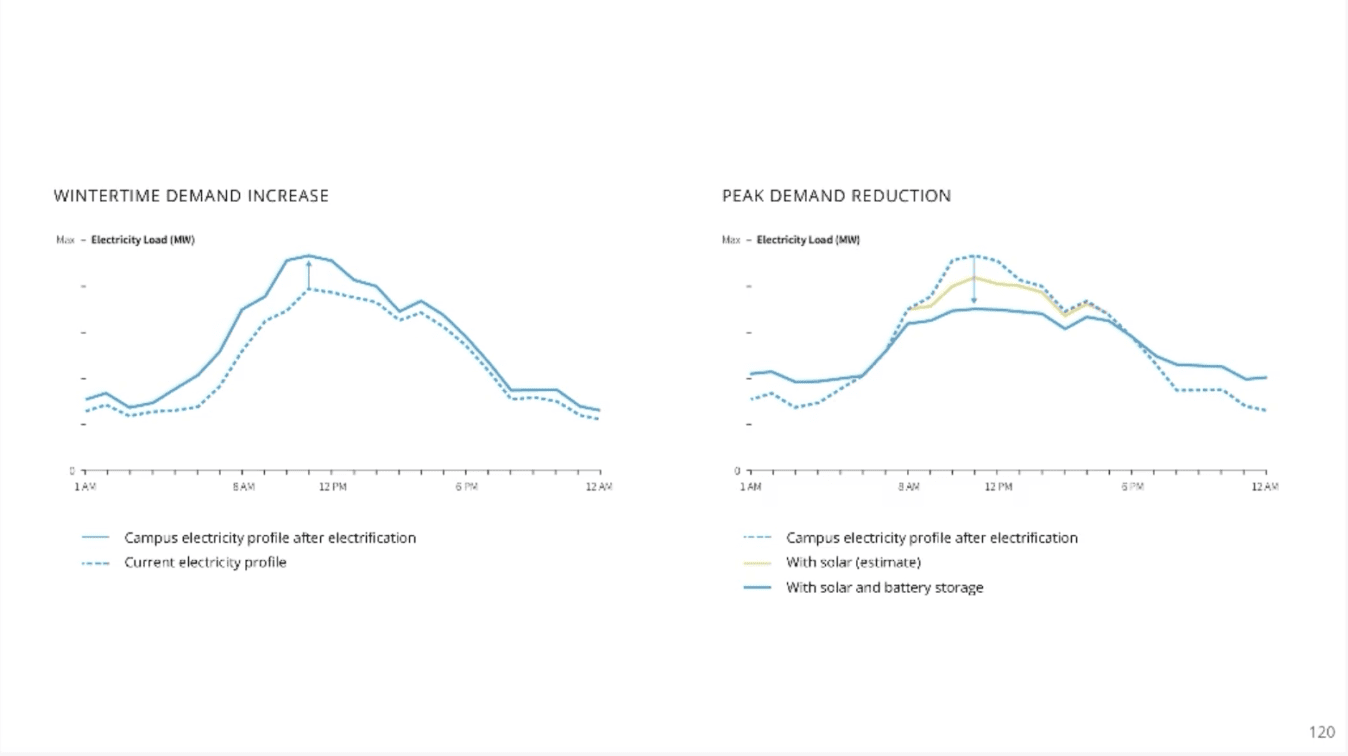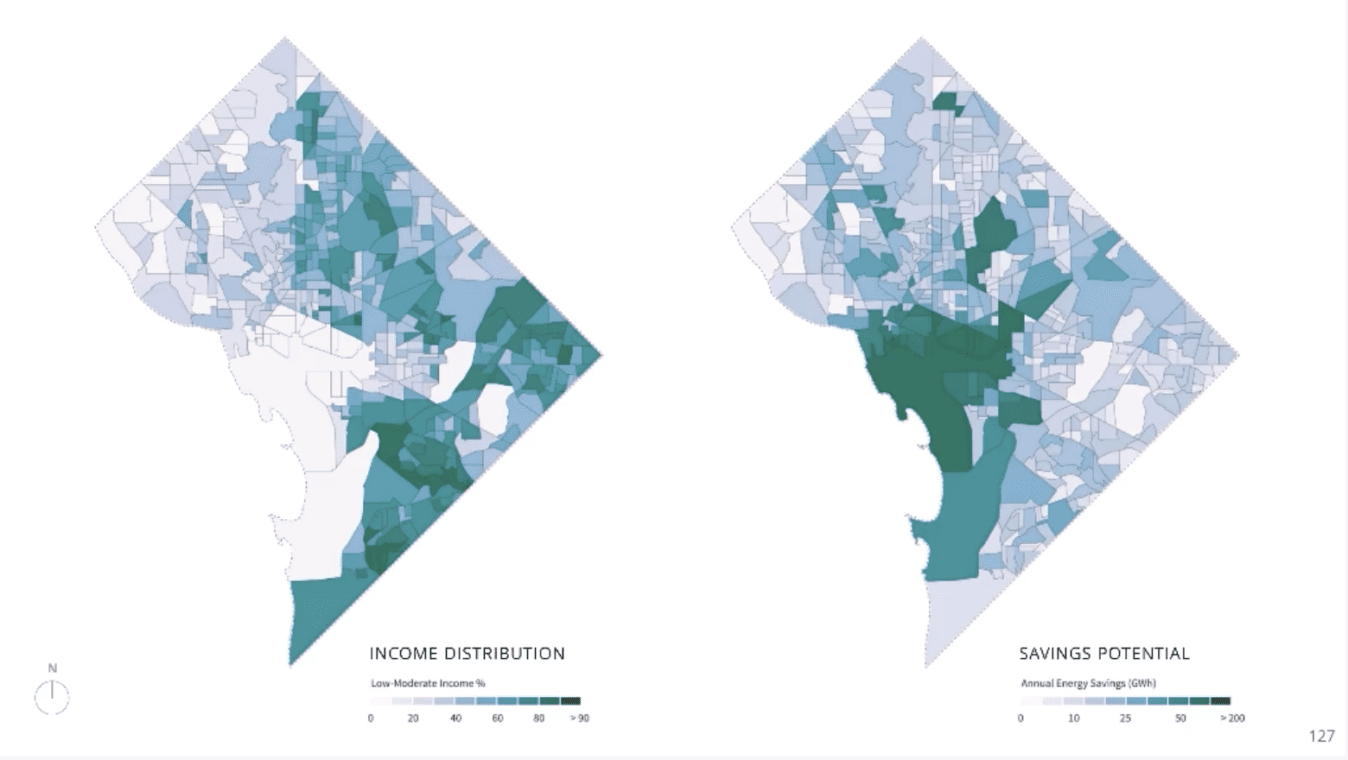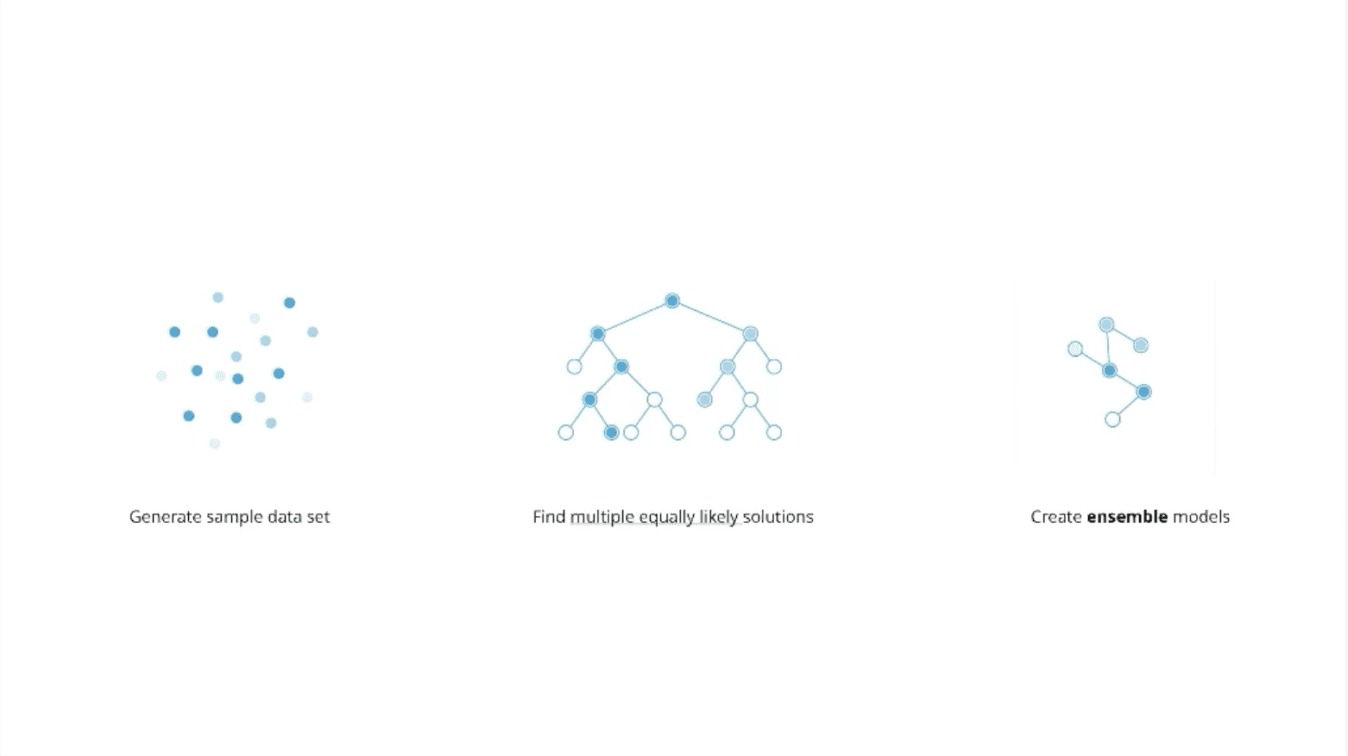Editorial, ” This session reviews the U.S. Green Building Council’s LEED for Cities program globally. Cincinnati received its LEED Certification in November 2019. The second speaker presented his PhD work analyzing efficiency models holistically and not individually. This allows a city to understand where investment will have the most impact. We are donating our time attending Greenbuild to help the Contemporary Arts Center (CAC) meet its 2030 District goal of 50% reduction in energy use from the time it was built in 2006 to 2030. The main take away from this session is to look at buildings nearby the CAC at a 6th and Walnut Streets to see if they can work together to reduce energy use collectively. Because the CAC building needs to maintain a consistent 70 degrees F and 50% Relative Humidity, this might not be a good solution. If you like analyzing complex systems and researching new and innovative ways to solve sustainability problems, get in touch. The Zaha Hadid designed building is particularly challenging but that’s why it so rewarding to volunteer our time on the project.”
LEED for Cities and Communities was launched in December 2016. 100 cities and communities have certified under this program. LEED Platinum certified Washington DC offers such an example, where LEED Platinum certified USBGC offices are in a LEED Gold certified building, located in a LEED Platinum certified Gold Triangle Business Improvement District. Although many of these cities and communities are aggressively working on climate action – including setting targets like reducing 80% emissions by 2050 and moving to 100% renewables, they lack effective planning and implementation tools to operationalize such policies.
Traditional top-down urban energy models do not offer the capability to connect city scale assessments down to individual buildings, which is essential in operationalizing new laws that place buildings on a path to meet a city’s decarbonization goals. The City of New York, for example, enacted the Local Law 97 last year to reduce emissions 80 percent by 2050 — the most ambitious climate legislation for buildings enacted by any city. To enable effective planning towards such goals, this session will present a novel suite of bottom-up urban models, that combine established building energy model generation techniques with data-driven machine learning methods, to provide the fidelity of information that a collection of individual building energy models would yield.
The session will first review the findings from a model developed for a well-recognized city project with regards to its setup, ability to establish baseline performance scores, and to develop building level prioritization plans to formulate cost-effective city-wide decarbonization strategies. The second half of the session will present, through technical and usability perspectives, the overlap between research (USGBC) and industry (Elementa Engineering) to develop an analytics engine designed to power digital platforms that help measure and improve sustainability performance across the built environment – finally connecting buildings to communities, and cities.
LEARNING OBJECTIVES:
Explain the role of city-wide building energy models for long term decarbonization planning.
Explain conceptually how machine learning algorithms can auto-generate individual building energy models based on historic data.
Describe how planners and administrators can employ such methods to inform and operationalize building retrofit policies.
Define the constraints of such planning tools and how expert knowledge still plays a key role.
CE HOUR(S): 1
GBCI, AIA LU
LEED Specific: ND
Learning Level: Intermediate
Vatsal Bhatt
Vice President – Communities
US Green Building Council
Dr. Vatsal Bhatt works with the U.S. Green Building Council as the Vice President of Communities, where he helped conceptualize and make operational the LEED for Cities and Communities rating system. For 20 years, he has worked as energy economist on energy-water-climate change systems analysis for urban, regional, national and world energy planning and policies. As a senior energy policy analyst at the Brookhaven National Laboratory, Dr. Bhatt has worked on various national and international assignments for energy systems analysis and low-carbon development for the U.S. Department of Energy, the U.S. Department of State, the U.S. Environmental Protection Agency, the National Science Foundation, universities, foundations, and international governments. Dr. Bhatt is a lead author of the U.S. Global Change Research Program’s first-ever assessment of the “Effects of Climate Change on Energy Production and Use in the United States”
Shreshth Nagpal
Principal
Elementa Engineering
Shreshth’s professional focus over the past fifteen years has been to understand and model building performance that results from the interaction between envelope configuration, climatic context, functional requirements, conditioning systems, and occupant behavior. More recently, his doctoral research focused on developing automated workflows to construct living urban energy models that are designed to systematically explore future energy scenarios and identify areas of maximum potential savings. Shreshth’s role has been primarily to manage the holistic environmental design scope, and work closely with the project teams to shape building and urban designs from the concept phase through implementation. He especially enjoys working on projects with a focus on designing with passive strategies for thermal and visual comfort; and has completed specialized building-physics analyses to help inform design decisions of several award-winning projects that represent a broad spectrum of types, scales, climates, and performance goals.
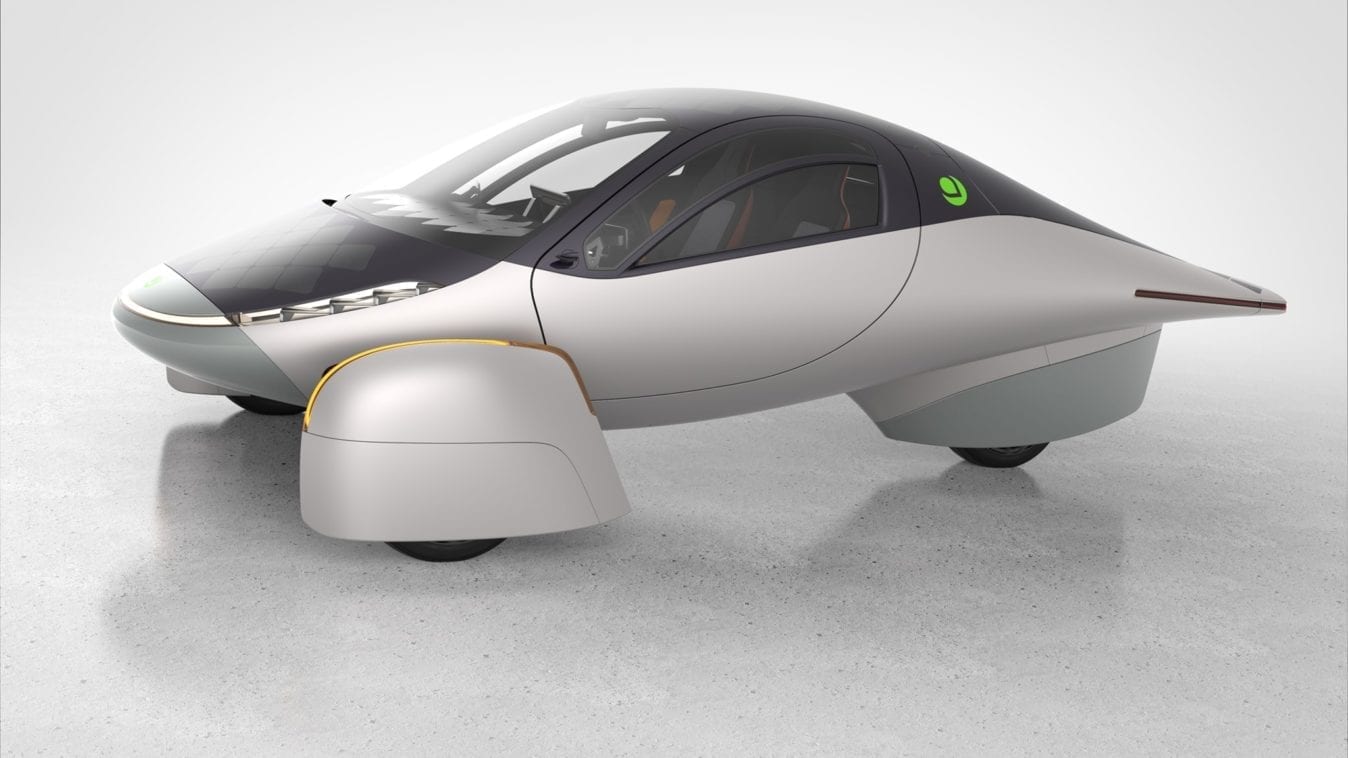
Get $30 off your Aptera Pre-Order
Click this link and you’ll receive a promo code for $30 off an Aptera pre-order. The 2nd Generation Aptera launched Dec. 4, 2020 and is on track to be the first self charging electric vehicle. The two-person, three-wheeler is covered with solar panels which allow self-charging but it also comes with a plug for charging. For every person I refer, I’ll earn a $1,000 credit towards an Aptera. After referring 26 people, I’ll score a free standard edition model. I’m a volunteer Aptera Ambassador, read more about this incredible solution to beautiful design and the ultimate in sustainability! Thanks for your referral, Chuck Lohre, Editor, Green Cincinnati Education Advocacy. #aptera #apteramotors

